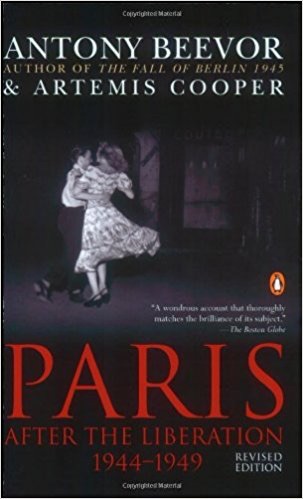Paris After the Liberation 1944-1949
by Antony Beevor
What’s hard to imagine about the aftermath of the Occupation, and what Beevor captures wonderfully, is the extent to which everything seems to have been improvised at the last minute. Everyone was terrified that they’d be accused of collaborating; everyone who stayed, after all, had in some sense collaborated. No one knew whether the Occupation would be replaced by a new Allied Occupation or by something else — and if the latter, whether something else would be a new republic or the old one.
Someday, Trump will be gone. It makes sense to think about how we can restore our damaged land.
The other fascinating argument this close look at Paris after the war makes is that these years were necessarily a response to the failure that became Vichy, and that the response itself was a failure. Rather than address the legacy of the war, France (after some years of toying with Communism and related dithering) chose to adopt a comforting myth, and to adhere to that myth until it collapsed in the wake of 1968. Beevor thinks 1968, too, was a failure. Most people do. But 1968 transformed the way way think; the triumph of rock and irony, the rise of postmodernism, liberation theology are all built on the foundation of 1968.
1968 gave us, in the end, the collapse of the Iron Curtain. It also gave us truthiness and Trump. We’re still living in the ruins.
